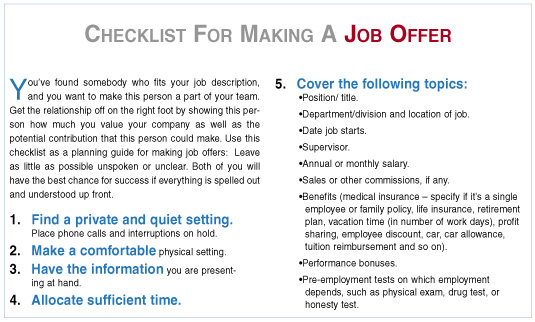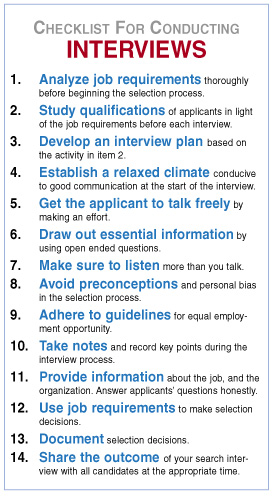You may have a big selling job to do if you're going to hire the really good people you need.
If you think you're having a hard time finding and keeping a full staff, take heart. You're keeping fine company. Perhaps you saw this little piece a few weeks back when Farooq Kathwari, chairman and chief executive officer of perhaps the strongest brand in the furniture industry, acknowledged that Ethan Allen stores across the country are 30% to 33% understaffed on their sales floors.
Of course, Kathwari, who was talking to a conference of securities analysts, didn't use those precise words. What he did say was that he wants 1,000 more designers in the 300-or-so Ethan Allen stores, which already have about 3,000 people in their sales departments. With the additional staff, Kathwari said Ethan Allen could generate an average of about $400,000 in annual sales per person or $400 million combined. Imagine that!
Thankfully, Farooq used round numbers so I'm able to calculate that he wants the Ethan Allen corporate and franchise stores to add an average of three designers each, a 30% increase from the current average of about 10 per store.

In other words, Ethan Allen has the same problem facing all of us in home furnishings retailing. We are missing out on huge sales opportunities because we don't have enough sales help to handle all the customers who would like to make purchases in our stores.
Ethan Allen has the name and the reputation, not to mention the corporate firepower, to go find the designers it wants. But what are you going to do about your staffing shortage on the sales floor, in the warehouse or in your office?
Which brings me to my topic: effectively managing the hiring process.
Regular readers may recall that (in the December/January issue of FURNITURE WORLD, also posted to the Marketing Management Index of www.furninfo.com) we first talked about the steps you can take to make your retail company more employee-friendly by creating a supportive, positive and empowered environment, all of which should cut down on your turnover. More recently, we covered some recruiting strategies you can use to go out and find a steady supply of creative and energetic people, as opposed to the more common approach of frantically trying to force round pegs into square holes.
The hiring process is a mating ritual for professional people. Do I like her? Does she like me? Is he right for my company? Is my store right for him?
Unfortunately, too many of us on the management side have become jaded. I don't know why, but some of us no longer get all excited about making a new match. We don't put our best foot – or our best face -- forward.
And that's too bad because we are clearly in a seller's market for personnel. In the 18 months since we started our management recruiting and placement firm for furniture retailers, the situation has done nothing if it hasn't gotten worse.
Besides the fact that the economy's been so good that unemployment is at historic lows, retail ranks right up there with permanent pain as a career choice. I talk to hundreds of job applicants every week, and many of them are convinced that retail is the only industry where they have to make a choice between their jobs and their family. That's about the most condemning statement you could hear about how people feel about our business.
So we have a big selling job to do if we're going to get the good people we need in our stores. That's why I believe retailers and retail managers need to pay much more attention to the hiring process.
As you probably know, I believe you should interview anybody who expresses any interest in working for your company. Even if it doesn't work out, you don't want to alienate a potential customer. Good candidate or not, here are some ideas on how you can manage the interview process so that you have the best chance possible to hire the people you like.
Location, location, location: The interview setting must be appropriately professional. Find a setting that's private and quiet. Hold all calls.
Put yourself in the candidate's shoes: Wouldn't it be offputting – even disrespectful -- if you were trying to talk to a prospective employer about a job, but that person keeps getting distracted by phone calls and other interruptions? If you had other choices, would you want to work for that person? And would you want to talk about yourself and your qualifications in a setting that wasn't private?
Spruce up the store: If your store isn't attractive and exciting, there's an Ethan Allen down the street that is, and they're hiring. The store should look polished and attractive. Make sure the office is tidy and neat. Remember that you are selling your company to the interviewee.
Be a good host: Make the interview setting as comfortable as possible. Give them space to spread out their materials. Make sure they have a clean and comfortable chair.
Be prepared: Have all materials that you need for the interview ready. At minimum, that should include the applicant's resume – which I assume you've reviewed, a job application, written interview questions, written job description of the position, a notepad and a pen, a company brochure and refreshments. Same deal as before. The applicant went to all the trouble of dressing up and making time to come in and see you. Now you have to show that you value that person's time so much that you took the time to get ready for the meeting. In addition, I believe that you should have everything out on display and visible so the candidate knows that you are prepared from the start.
Time is money: Don't waste yours or theirs by not giving the interview sufficient time to do it right. If you are rushed, you will waste everybody's time, and another candidate will go off looking elsewhere.
A lot of this may sound like common sense and common courtesy. It is. Unfortunately, in the hubbub of working life today, with people and managers stretched so thin, we sometimes neglect the niceties, thinking that people will overlook the small stuff and recognize that this is actually a good place to work. The truth is, however, that small gestures added together carry more weight than anything else. People are sensitive to nuance, and if you are willing to nuance them with kindness and respect, you will create a better place to work and a better place to shop, which will make more people eager to work in your stores.

Sam Leder, wrote this article while President of Shepherd Retail Recruiting. Sam has 34 years of retail management, consulting and recruiting experience in the home furnishings industry. He has been in management positions for top 100 furniture retailers including Breuners, Haynes and Rhodes and has provided consulting services to more than 300 retailers. For more information about the topics in this article contact Sam care of FURNITURE WORLD Magazine at sleder@furninfo.com.